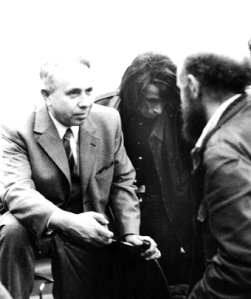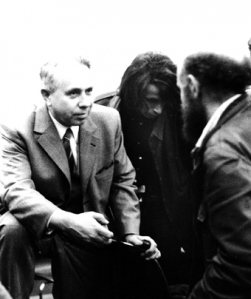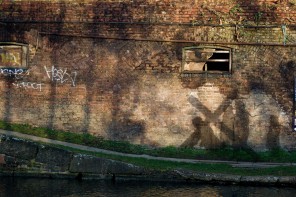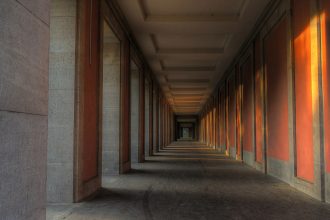 The team at Transpositions is very grateful to the scholars who contributed posts for our Rookmaaker Symposium, and also to those who offered their comments and questions. The week provided a small snapshot of Rookmaaker’s life and work, and it points to various reasons why he played such an influential role in encouraging Christians to participate actively in the various activities we call “the arts.”
The team at Transpositions is very grateful to the scholars who contributed posts for our Rookmaaker Symposium, and also to those who offered their comments and questions. The week provided a small snapshot of Rookmaaker’s life and work, and it points to various reasons why he played such an influential role in encouraging Christians to participate actively in the various activities we call “the arts.”
Since Rookmaaker’s death in 1977, a great deal has happened within the interdisciplinary conversation between Christianity and the arts: a host of new books have been published, new organizations have been formed, more churches actively and intentionally explore how to incorporate the arts in worship, and new educational curriculums have been developed. I wonder what Rookmaaker would think of all this if he were alive? I’m sure that he would find many kindred spirits today. But I also wonder how the concerns of today are different from, or have even moved beyond, the ones that motivated Rookmaaker?
I was intrigued by a couple of questions made by commenters that point towards a sense that the relationship between Christianity and the arts has changed since Rookmaaker’s time. In response to John Walford’s post “Hans Rookmaaker’s ‘Four Freedoms’ and Christian Art (Part I)”, Betty Spackman writes:
the invitation to freedom he [Rookmaaker] offered to my generation of artists I find is now a much too ‘taken for granted’ thing for my students who are artists of faith in Christian academia in particular. We fought to gain freedom but I think my students now needing to ask what to do with it. Many are in danger of either spiritual apathy or artistic laziness as they enjoy what is perceived as a given – as ‘justificaton’ of their practice. But as Rookmaaker said, art needs no justification. That is not the point, not the focus. Being free in a post humanist world brings incredible new dangers and challenges to young artists and my prayer is that there will be those ready to step into the lion dens of the future. How can we help prepare them?
As someone who is a Christian and who also graduated from a studio art program at a Christian college, I resonate with Spackman’s observations. Of course, I have met some who questioned my choice in college to pursue a degree in studio art, but she is right that I never really had to ‘earn’ my freedom to be an artist. Thanks to Rookmaaker and others, many Christians today feel that the arts (in its various forms) are a perfectly acceptable professional field (even if it won’t make you very much money!). But now that growing numbers of Christian artists no longer harbor deep wounds from their religious communities, how will this affect the ‘Christianity and the arts’ interdisciplinary landscape?
kjbake01 asks a very similar question:
What do we say to our overly romantic and thoroughly encouraged young artists? Many churches have been quite admirable in giving a gigantic “green light” to their artists, praise God, but the work created seems to be overly extemporaneous and even self-indulgent. What’s the way forward?
Peter S Smith and Betty Spackman responded to this question by suggesting the importance of re-imagining both the arts and the artist. In other words, more thoughtful work is needed to move us beyond the frameworks we have inherited from modernism. In his response to kjbake01, John Walford reminds us:
any Christian artist who takes Scripture seriously, who keeps his or her eyes fixed on Christ’s teaching, and that of his apostles, will surely soon discover that there is no place for self-indulgence. But rather, we are called to fight the Narcissus within us.
As more Christians become professionally associated with the arts, and as artists begin to take on new roles in our churches, it is important that Christians learn to discern how to be Christ-like in these new situations. This is the primary challenge that faces all disciples of Christ, and it is one that will be met with greater frequency amongst Christians working in and with the arts as Christianity’s relationship to the arts continues to evolve.
Image Credit: Wikimedia Commons






So, a week went by, celebrating the life and thought of Hans Rookmaaker, at “Transpositions,” and here are the editor/coordinator, Jim Watkins’ worthwhile, concluding comments.
For myself, I will add, without the influence of Rookmaaker in my life, I simply cannot imagine what my life would have become, and nor would I have met my remarkable and loving wife, Maria Dellu’.
For both, I will go into eternity profoundly grateful.
Thank you, Jim, for your reflections on the week that was!
Also, thank you and your Transpositions team for putting together in a remarkable way a forum that both honoured HRR as well as opened critical and civil (not that HRR was always the latter!) exchange on his legacy.
I am also grateful for those who posted as well as those who commented. I learned a great deal from all of you. Thank you.
Personally, I found many of HRR’s opinions infuriating. I suppose that is how I originally engaged with him, by arguing with him. Provocation was no doubt a part of his pedagogical strategy. A good Dutchman can stand up to any argument! To the end we were both adversaries on a certain level, but also good friends.
Formed by the thinking of The Inklings, I was urging him in directions he was inclined to go to, but not quite ready to take up . . . he was pondering them . . .
Yet he opened himself up to thinking about this . . . Colin Duriez can probably best see any possible HRR convergences latterly with The Inklings.
HRR lived an open life on so many levels. . . . I thank God for his open mindedness and his openheartedness without ever giving an inch away of faith in his expansive way of receiving the world and embracing it.
He died this coming Sunday on 13 March 1977. May he RIP.
One way or another, I expect the HRR conversation will continue regarding his legacy for a while to come although the contours of it will continually be modified.
Again, thank you Transpositions for launching this significant conversation.